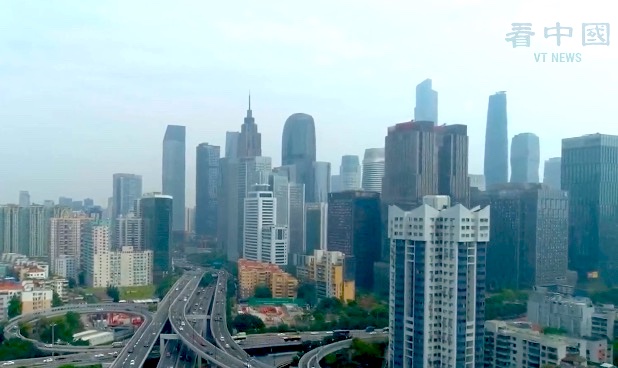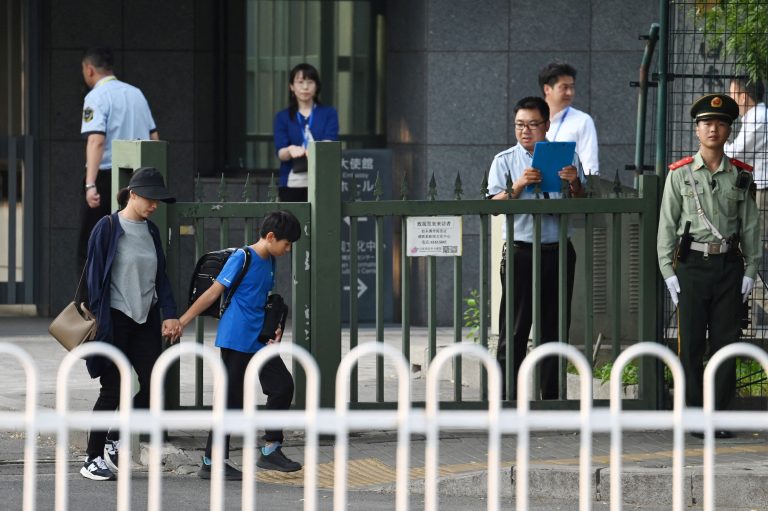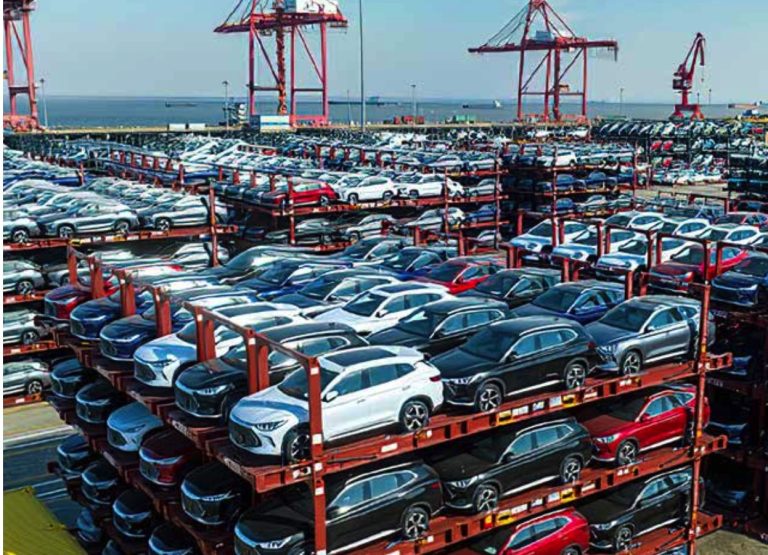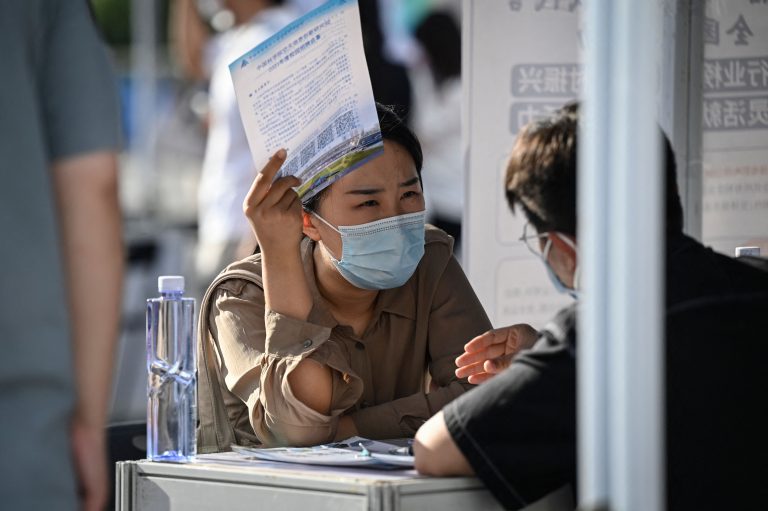Dongguan, a city of 10 million in southern China’s Pearl River Delta, has long holds an important place in China’s manufacturing and export economy. However, as the Chinese economy slows, many businesses and industrial centers in the southern metropolis are struggling for survival, as are countless workers.
Once filled with factories, Dongguan’s Chang’an town now hosts numerous vacant storefronts with “For Rent” signs everywhere. In the industrial park areas around Gaobu town, few people can be seen in the once-bustling locale.
Located in the megacity comprised of other southern Chinese cities like Guangzhou, Hong Kong, and Shenzhen, Dongguan is known globally as a manufacturing hub, especially in the electronics, footwear, and furniture industries. It has been a magnet for foreign and domestic investors, but those days appear to be numbered as trade between China, the United States, and other countries drops, and the Chinese Communist Party (CCP) shifts to a model of state-subsidized product dumping.
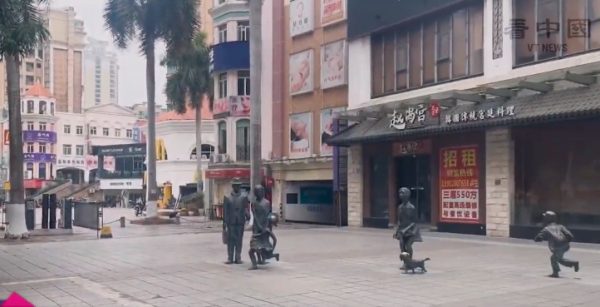
Dongguan-based blogger “Lao Chen” shared his recent observations after having worked briefly last year at a factory in Gaobu town. According to Lao Chen, the workforce at this factory has shrunk precipitously.
He described the current state of Gaobu town: “Last year, the industrial park in Gaobu packed, with many people commuting and enjoying late-night meals. There were plenty of street vendors outside the park. Now, however, only two or three vendors are left, and it’s hardly worth their while. Everywhere is empty; the streets outside the industrial complex are completely dark, and there isn’t a single person in sight.”
Worker: ‘Competition is too fierce; I can’t make it in Dongguan‘
Success
You are now signed up for our newsletter
Success
Check your email to complete sign up
A blogger from Chongqing, named “Xiaoxin,” described on Oct. 23 how he and his wife had relocated to Dongguan for work, but realized within a week that they couldn’t make ends meet and quickly packed up to return to Chongqing.
“The biggest impression Dongguan left on me this time is just how hard it is to earn a living. After going around the city, I found that finding job opportunities is truly challenging; competition is too fierce.”
He added, “It’s not just technical jobs — many in the manufacturing sector can’t make a profit, and competition is tough in other industries as well. This morning [Oct. 23], while out for breakfast, I noticed a barber shop on the roadside offering haircuts for just 10 yuan (about US$1.40). The shop owner still has to pay rent and labor costs, so how can they make any profit?”
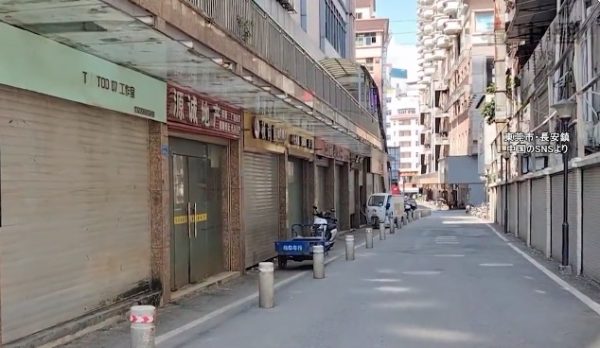
Blogger “Junbao” from Dongguan recently visited Chang’an — which has a population of about half a million and is one of the most vital towns in Dongguan — and took videos to comment on its current state of decline.
Junbao recalls when Chang’an’s shops were bustling, and securing a storefront was extremely difficult. The area was surrounded by hundreds of factories, alongside numerous rental homes. Chang’an’s GDP once led all of Dongguan, benefiting from its ideal location.
“Now, visiting the town, you’ll find row after row of closed shops, with clothing stores nearly wiped out,” Junbao said in a video. “There used to be a big stage in town, and the evenings were lively, with people dancing in the square. That place is now deserted and converted into a parking lot. Running a business has become really tough.”
Fast-food establishments in hard times
Chang’an, once lined with milk tea shops that thrived on weekend crowds, has seen wave after wave of closures in the past two years. Many stores remain shuttered, and the commercial streets are almost completely deserted, Junbao observed.
According to him, few stores are left operating, and most are struggling daily to cover even basic expenses like rent, water, and electricity, running at a constant loss.
With many factories closing and workers leaving Dongguan, the food industry has taken a substantial hit, and numerous eateries have been forced to shut down.
A user called “Miao Miao Ma” shared in a video that a relative invested over 2 million yuan (about US$280,000) to open a cafeteria in the industrial area of Changping town, but business has been tough. With few other options, they are just barely holding on.
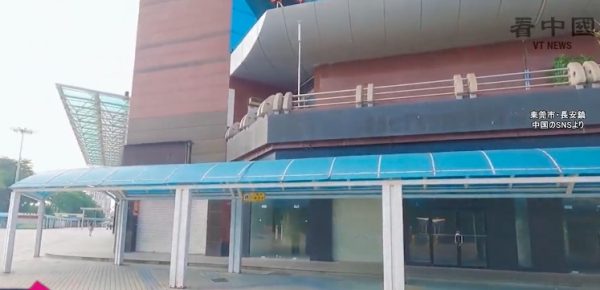
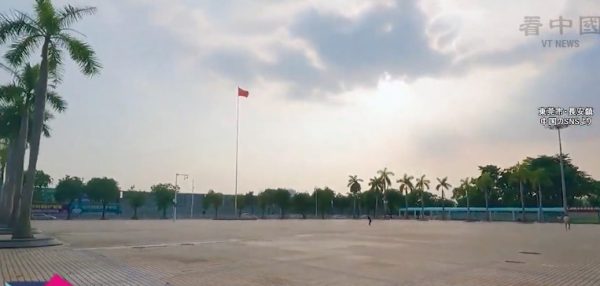
In the video, Miao Miao Ma explains her relative’s situation: “I went to my brother-in-law’s cafeteria last weekend, and due to low occupancy in the industrial area, the cafeteria is struggling. The ground floor is a supermarket, while the second floor is the cafeteria. However, they don’t know how to make full use of the spacious ground floor. They invested over 2 million yuan, and it’s only been open for two years.”
Another Dongguan-based blogger, “San Pao Lifestyle Record,” recently noted that many fast-food stores have simply gone under.
“With fewer workers frequenting fast-food restaurants, many have been unable to sustain their business, closing down even just three or four months after opening. Nowadays, hardly anyone visits these places, and more are failing one by one,” he observed.
Dongguan’s iconic Yue Yuen Shoe Factory on the way out
Dongguan, known globally as the “world’s factory,” was once home to many massive companies employing tens of thousands to over a hundred thousand workers each. Among these was the Taiwanese-owned Yue Yuen Shoe Factory.
Yue Yuen is a subsidiary of Taiwan’s Pou Chen Corporation (PCG), the world’s largest contract manufacturer of athletic footwear, producing high-end sports shoes for brands such as Nike, Adidas, Asics, Reebok, and Puma.
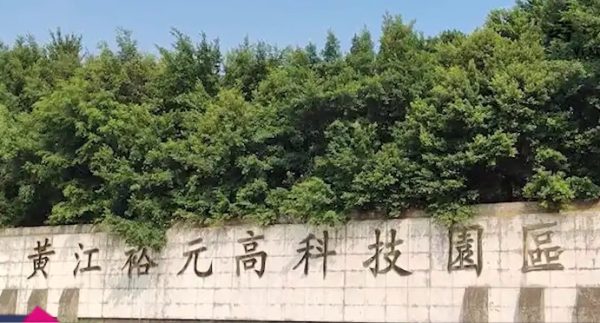
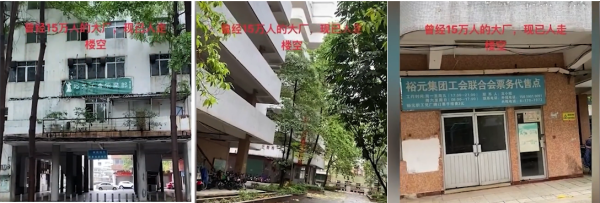
The footwear producer had two factory complexes in Dongguan, one located in Gaobu and the other in Huangjiang town. Both employed tens of thousands of workers, with a combined workforce at one point exceeding 300,000.
Due to the large number of employees, workers had to take shifts to the cafeteria for lunch, and leaving the premises at the end of a shift could take more than ten minutes due to the crowds. To encourage employee morale, Yue Yuen provided meals, housing, and even established kindergartens and schools for employees’ children. The company also operated its own hospital, cinema, and fire station.
At its peak, Yue Yuen occupied half of Gaobu and accounted for 50 percent of the town’s total exports. In 2007, its annual production value reached billions of dollars. However, due to rising labor costs, energy prices, and taxes in mainland China, Yue Yuen began relocating operations from Dongguan to Vietnam starting in 2012.
With reporting by Vision Times Japan.



